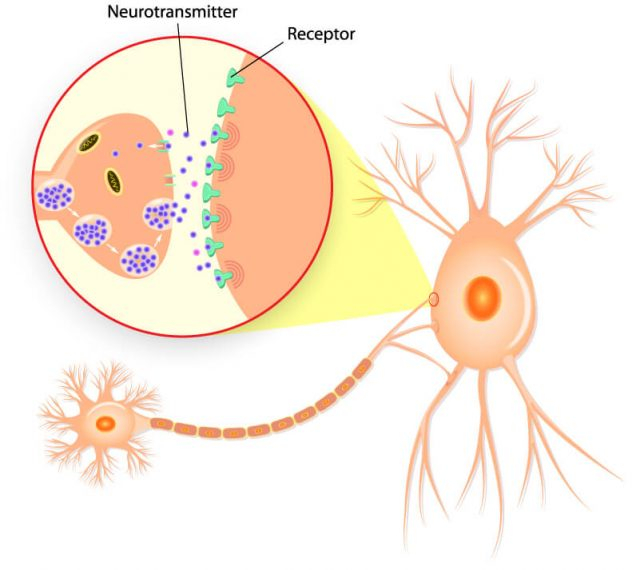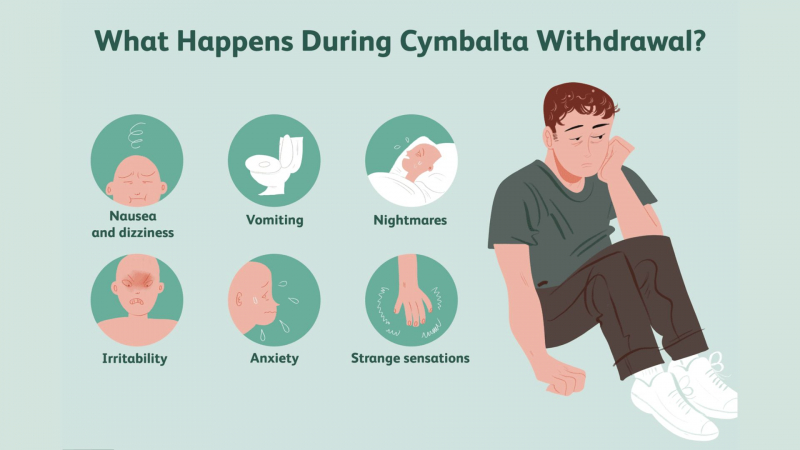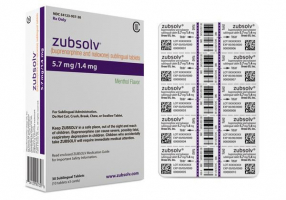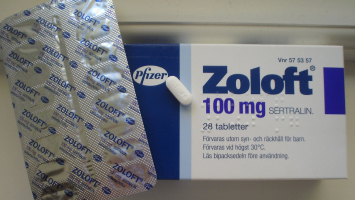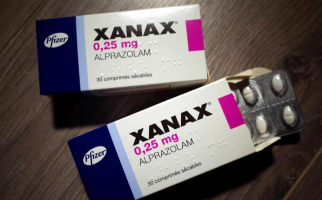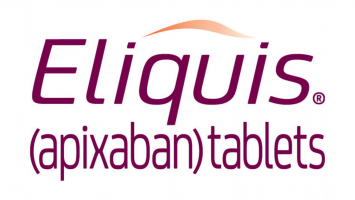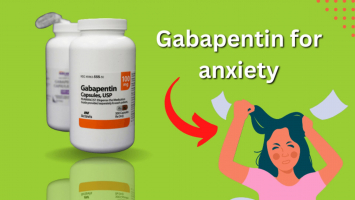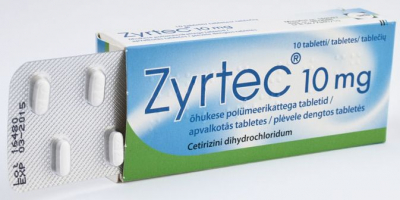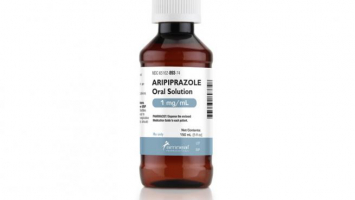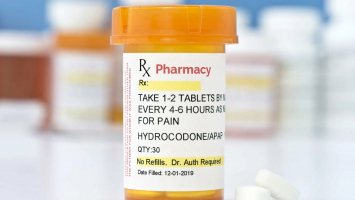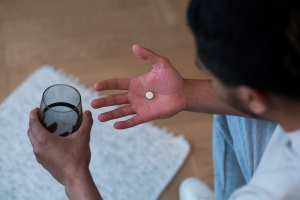Top 7 Things to Know About Cymbalta
Cymbalta belongs to the group of psychotropic drugs, the main ingredient is Duloxetine. Cymbalta 30mg is mainly used in the treatment of depression and ... read more...generalized anxiety disorder. In addition, Cymbalta is also used to treat peripheral neuropathic pain in people with diabetes.
-
Cymbalta is a brand (trade) name for duloxetine. Duloxetine can be used to treat depression, chronic pain, and anxiety.
While experts are unsure of the precise mechanism of action of Cymbalta (duloxetine), they do believe that its capacity to enhance the effects of serotonin and noradrenaline in the central nervous system is what gives it its antidepressant, pain-relieving, and anti-anxiety effects.
The class of drugs known as selective serotonin and norepinephrine reuptake inhibitors (SSNRIs) includes Cymbalta.
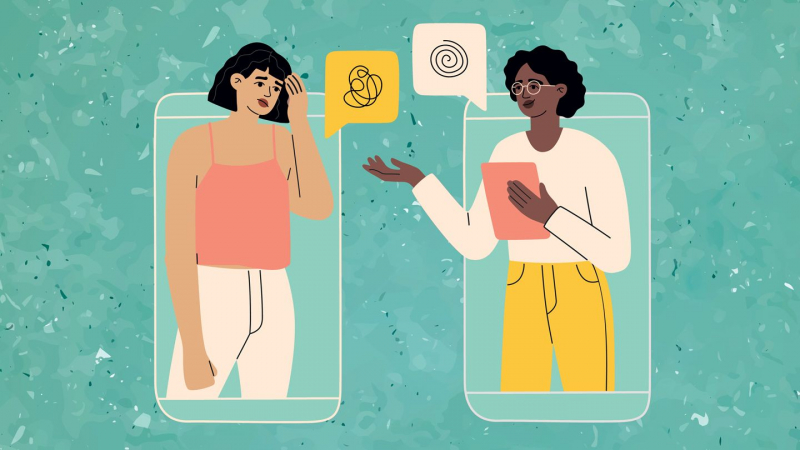
Everyday Health egpat -
Used to treat moderate-to-severe depression (Major Depressive Disorder).
It may be used to treat anxiety symptoms in adults and children over the age of seven who have a generalized anxiety disorder.
Diabetes-related nerve pain may be relieved (diabetic peripheral neuropathy).
It may be used to treat chronic musculoskeletal pain and to relieve pain associated with fibromyalgia.
Duloxetine, the generic name for Cymbalta, is also available.
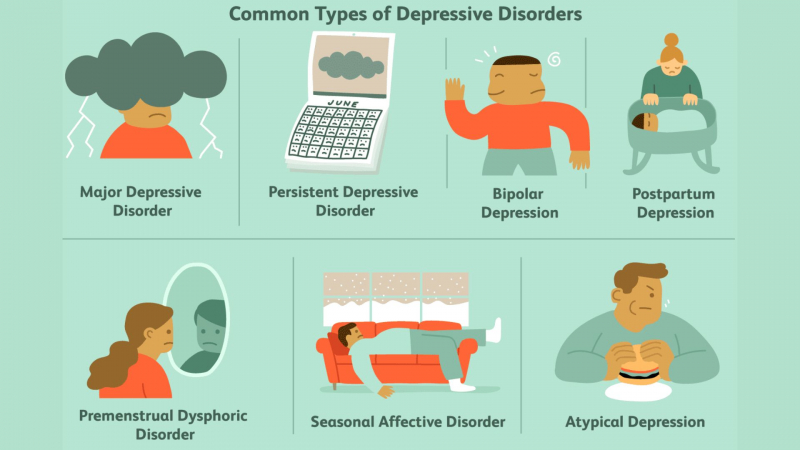
Verywell Mind 
Certified Foot & Ankle Specialists -
If you are between the ages of 18 and 60, do not take any other medications, and have no other medical conditions, you are more likely to experience the following side effects:
- Drowsiness, insomnia, nausea, headache, dry mouth, constipation, and dizziness are all possible side effects. Side effects are common with Cymbalta, and one in every six people discontinues use due to them. Cymbalta has also been linked to severe skin reactions and urinary retention.
- Suicidal ideation is more common in young adults under the age of 24 (similar to other antidepressants).
- If stopped abruptly or even when tapered, it is associated with a discontinuation syndrome. Anxiety, headache, dizziness, diarrhea, unusual sensations such as pins and needles, irritability, insomnia, increased sweating, and tiredness are all possible symptoms. On the advice of a doctor, taper off gradually.
- Serotonin syndrome (symptoms include mental status changes [such as agitation, hallucinations, coma, delirium], fast heart rate, dizziness, flushing, muscle tremor or rigidity, and stomach symptoms including nausea, vomiting, and diarrhea) can be caused by interaction or overdosage.
- In people with undiagnosed bipolar disorder, it may trigger a manic episode.
- May cause a drop in blood pressure, which is especially noticeable when moving from a sitting to a standing position and increases the risk of falling. Some people's blood pressure may be raised as well.
- May increase the risk of bleeding; exercise caution when taking other medications that increase the risk of bleeding (such as aspirin and NSAIDs).
- May cause a drop in total body sodium (hyponatremia); elderly people, those taking diuretics, or those who are already dehydrated may be more vulnerable.
- Cymbalta dosage should be reduced in people who have mild to moderate kidney or liver disease. Avoid if you have severe kidney or liver disease. There have been reports of Cymbalta-related fatal liver failure.
- Diabetes patients' blood sugar control may be harmed. Glaucoma patients may experience an angle-closure attack. People with a history of seizures should avoid it. It has the potential to interact with a variety of other drugs, including those metabolized by cytochrome p450 2D6 or 1A2 enzymes (such as nortriptyline or flecainide).
Seniors and children, people with certain medical conditions (such as liver or kidney problems, heart disease, diabetes, seizures), or people who take other medications are more likely to experience a broader range of side effects.
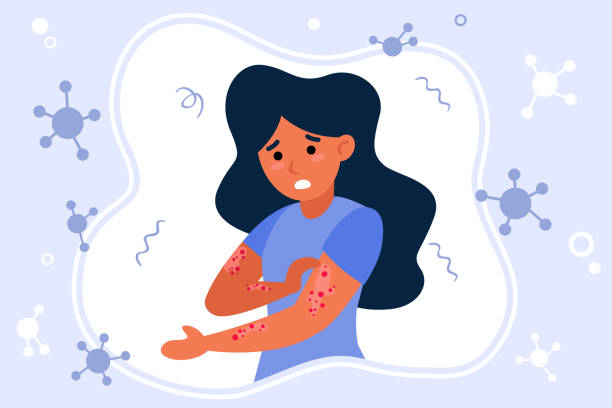
iStock 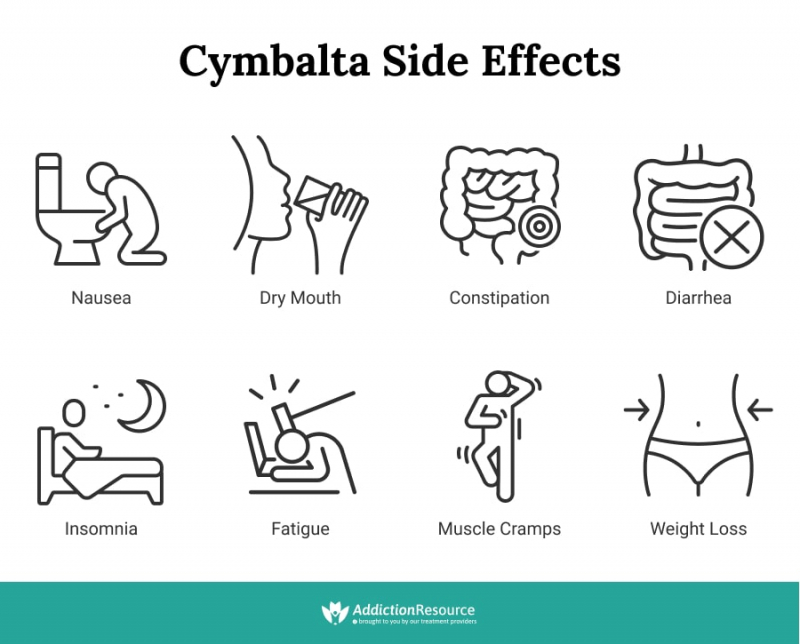
Addiction Resource -
It is safe to take with or without food.
Cymbalta is a medication with a delayed release. Cymbalta capsules should be swallowed whole, without being crushed or chewed. Do not open the capsule and sprinkle on foods or liquids, as this may affect how the capsule's contents are absorbed.
Initial doses of 30 mg/day for at least one week may be preferable to improve tolerance to the effects of Cymbalta. There is no evidence that higher doses than 60mg/day provide any additional benefit.
When you stand up from a sitting or lying position, Cymbalta may cause dizziness. Rise slowly.
Report to your doctor any signs of depression worsening or suicidal thoughts, especially during the first few months of therapy. Agitation, hallucinations, a fast heart rate, dizziness, flushing, muscle tremor or rigidity, nausea, vomiting, or diarrhea should all be reported.
Stopping abruptly may result in withdrawal or discontinuation symptoms. On the advice of a doctor, taper off gradually.
If this medication makes you drowsy or impairs your judgment, do not drive or operate machinery. Stay away from alcohol.
Any problems with bleeding or bruising should be reported to your doctor. Report any unexplained skin changes (such as blisters or rashes), urination problems, eye pain or swelling, or vision changes.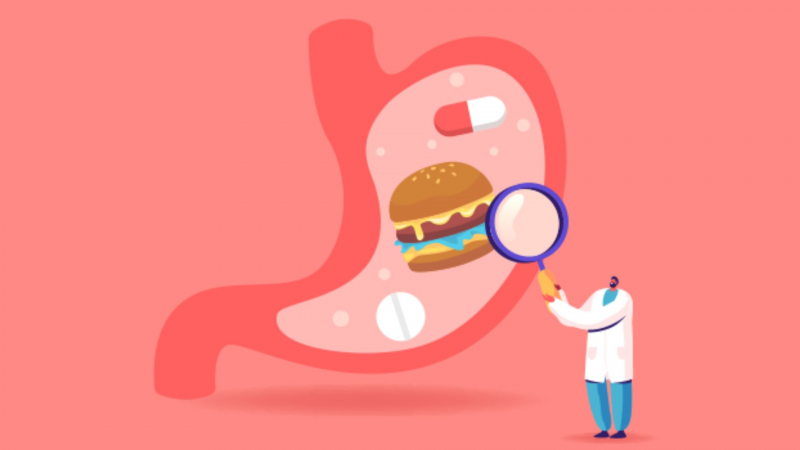
BuzzRx 
Transform Chiropractic -
It could take up to two hours for absorption to occur. Peak concentrations are reached six hours after administration. Full clinical effects (such as relief from depression, anxiety, or pain) may take several weeks to manifest.
60mg of Cymbalta is as effective as 120mg for some conditions (such as diabetic peripheral neuropathy), with fewer side effects.
Dosages greater than 60mg per day are generally associated with more side effects.
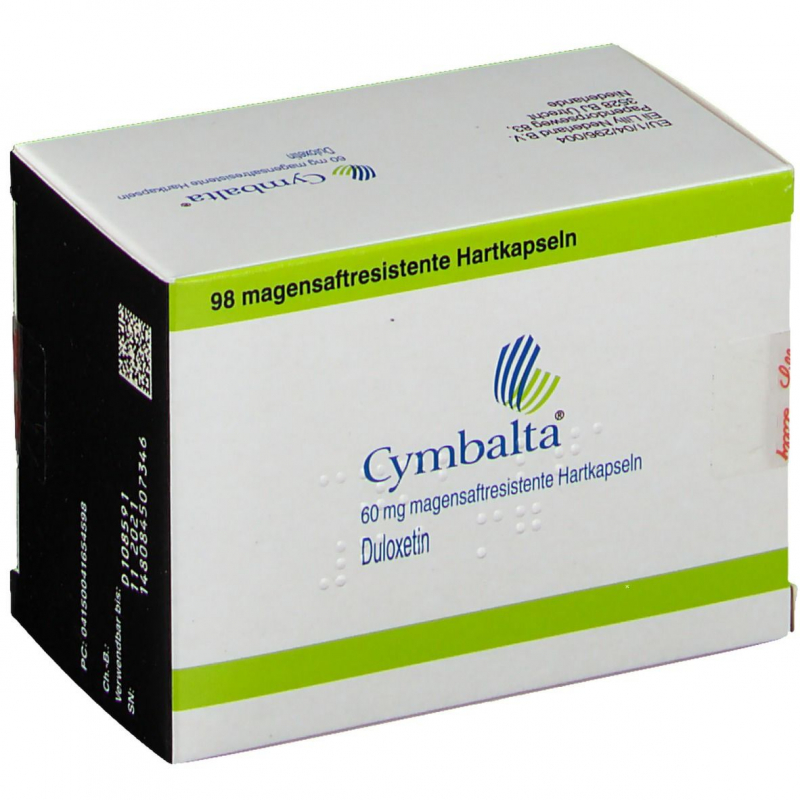
Shop Apotheke 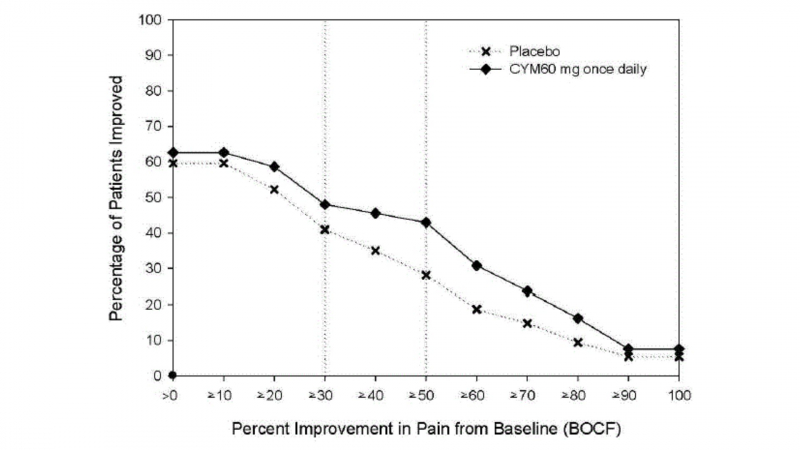
RxList -
Medicines that interact with Cymbalta may reduce its effect, shorten its duration of action, increase side effects, or have no effect when combined. An interaction between two medications does not always necessitate the discontinuation of one of them; however, it can. Consult your doctor about how to handle drug interactions.
Among the medications that may interact with Cymbalta are:
- anti-anxiety medications, including other benzodiazepines, such as diazepam and oxazepam
- antibiotics such as ciprofloxacin and enoxacin
- anticoagulants such as warfarin
- anticonvulsants such as phenytoin
- antidepressants, such as amitriptyline, imipramine, nortriptyline, and SSRIs (such as fluoxetine and paroxetine)
- antihistamines that cause sedation, such as diphenhydramine
- antiplatelet agents, such as aspirin, apixaban, clopidogrel, and NSAIDs (such as ibuprofen, diclofenac, naproxen)
- aprepitant
- diuretics, such as furosemide
- heartburn medications such as cimetidine, lansoprazole, and omeprazole
- HIV medications such as indinavir and ritonavir
- linezolid
- methylphenidate
- migraine treatments, such as rizatriptan and sumatriptan
- monoamine oxidase inhibitors, such as selegiline, isocarboxazid, or phenelzine
- omega-3 fatty acids
- opioid analgesics such as fentanyl, oxycodone, and morphine
- muscle relaxants such as cyclobenzaprine
- serotonin modulators, such as nefazodone and trazodone
- sleeping pills, such as zolpidem
- some chemotherapy treatments
- some heart medications, such as amiodarone, flecainide, doxazosin, and prazosin
- some medications used to treat mental illness, such as aripiprazole, clozapine, and thioridazine
- any medication that releases serotonin, such as lithium, tramadol, and St John's Wort
- voriconazole.
It should be noted that this list is not exhaustive and only includes common medications that may interact with Cymbalta. For a complete list of interactions with Cymbalta, consult the prescribing information.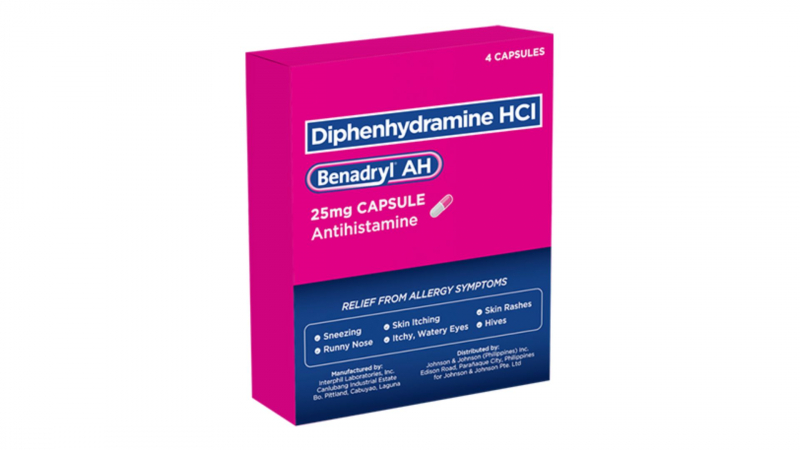
BENADRYL 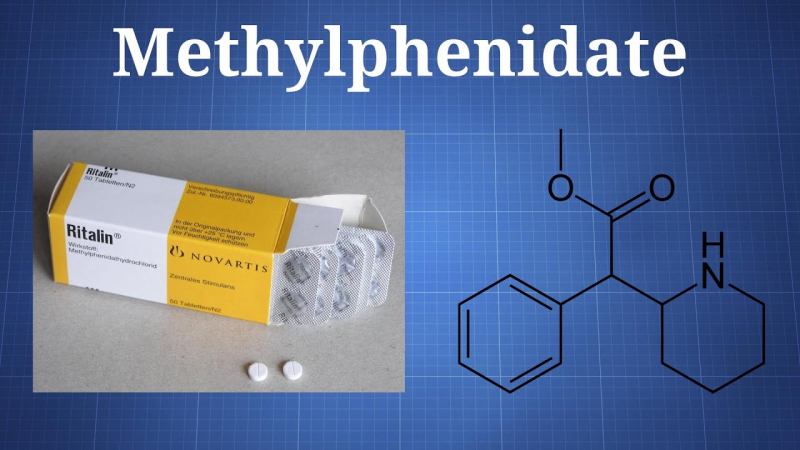
BCare.vn








